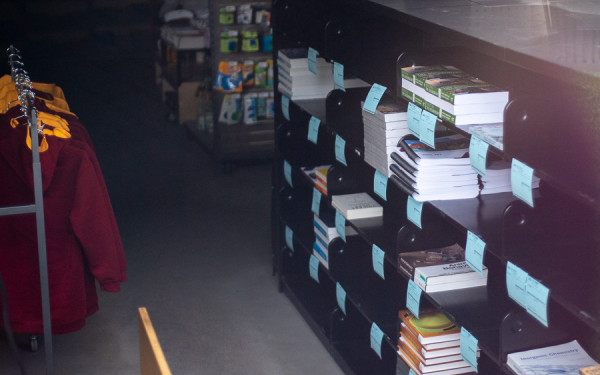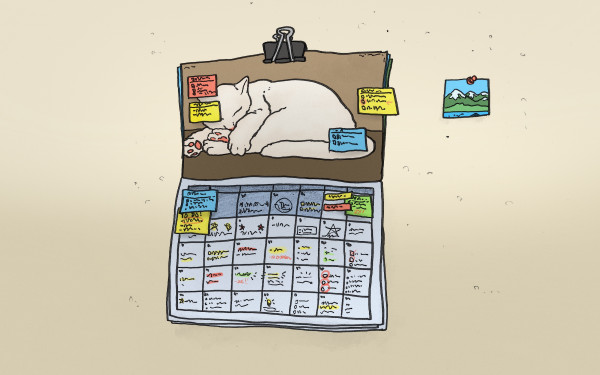Education Resources
As Michel Foucault told us, knowledge is power.
Education and learning are important tools for personal and societal improvement, but questions of access highlight the institutional biases against race and class that continue to pervert the system.
In this special issue, we at The Link tried hard to contextualize the concerns currently being tackled by various educational fields—from the unfair competition in early childhood education admissions to the pitfalls facing sex education.
University has it own set of issues—believe us, we know.
But it still is the pinnacle of our learning system.
If you don’t need the peripherals, the classrooms and the student space—or lack thereof—here are some resources that will really make you feel learned:
Google Course Builder
While developers are still working on the tech giant’s next venture, Google Course Builder will allow for anyone, anywhere, to prepare and present courses on any subject. This is because Google’s platform will be open-source, unlike Coursera or edX, which are affiliated with certain universities and other partners.
edX
An enterprise between Harvard University and MIT, edX also hosts courses from UC Berkeley and will expand to include the University of Texas.
Class Options are science- and technology-related, with advanced—but unaccredited—courses available in areas such as solid-state chemistry and computer science. The hosting universities also conduct research on student learning patterns, based on participation and feedback.
Open Culture
Sorted by subject, this list of 550 courses is compiled from all over the Internet—including other resources in this guide.
All of the catalogued courses are taught by a university professor, which ensures that, even though it does not cost anything, all the information sources are still credible.
NYU Open Education Program
New York University took some its most popular courses and uploaded them online for anyone to see. The Open Education project is a collection of seven courses—from American literature to calculus—and is meant to share information, not be credit-bearing.
Project Gutenberg
Named after the illustrious inventor of the printing press, Johannes Gutenberg, Project Gutenberg collects all Creative Commons and expired-copyright pieces of literature it can, with works already spanning over 50 languages, and puts them online.
Though you won’t find any recent bestsellers, it is an excellent resource for English literature students and keen readers alike.
Online College Consortium for Open Educational Resources
A collection of over 100 community colleges, the consortium has free textbooks that cover areas such as law, sociology and art history. Works are collected from member community colleges and other sources. The consortium has possibly the most exhaustive textbook resource available on this list.
The University of the People
The only accredited online institution on this list, the University of People is a tuition-free, not-for-profit body affiliated with the Yale Law School’s Information Society Project, the Clinton Global Initiative and the United Nations Global Alliance for Information and Communication.
Degrees are only available in computer science and business administration—and there are administration and exam fees of $50 and $100 respectively—but it is still the world’s only institution online that offers actual degrees to anyone, anywhere, tuition-free.
Learning Space, by the Open University
The largest university in the United Kingdom, the Open University has over 250,000 students and offers classes solely online. Over 600 are available for free in their new Learning Space project. The courses, accessible around the world, are prepared by the university’s faculty.
iTunesU
An application focused only on education, this multimedia-teaching tool works much like Google Course Builder, but is also being used to enrich university courses already being taught in a classroom.
Faculty and amateur professors alike can build lesson plans and interactive reading guides, while users can search the marketplace for practically any subject they can think of.
Book Boon
Originally founded in Denmark in 1988 as Ventus Publishing, this online service offers free textbooks in law, the humanities, the sciences, finance and other areas. All textbooks are written expressly for Book Boon by professors and other experts in their respective fields, and are available without even having to register.
Coursera
Coursera is a self-described entrepreneurial company, offering material from 33 partner institutions, including the University of Toronto, Georgia Tech and the Mount Sinai School of Medicine.
Lesson plans include tests and assignments, though the classes have limited starting dates. Notable subjects include Principles of Obesity Economics, and How Music Works.
Textbook Revolution
A contributor-based database, with books and manuals tackling subjects as fun as thoracic surgery, corporate finance and climate change, this so-called online revolution includes both free and not-so-free (but still cheap) textbooks. They also have courses available, which can be downloaded and completed without the worry of deadlines.

_900_636_90.jpg)




_600_375_90_s_c1.jpg)
